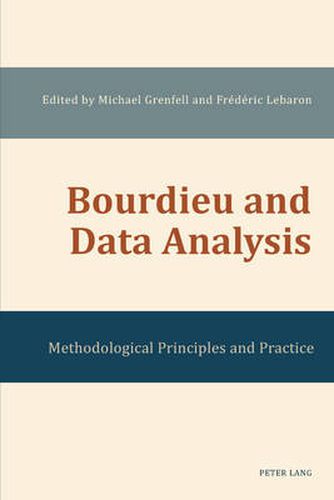Readings Newsletter
Become a Readings Member to make your shopping experience even easier.
Sign in or sign up for free!
You’re not far away from qualifying for FREE standard shipping within Australia
You’ve qualified for FREE standard shipping within Australia
The cart is loading…






This title is printed to order. This book may have been self-published. If so, we cannot guarantee the quality of the content. In the main most books will have gone through the editing process however some may not. We therefore suggest that you be aware of this before ordering this book. If in doubt check either the author or publisher’s details as we are unable to accept any returns unless they are faulty. Please contact us if you have any questions.
Uniquely amongst the numerous publications to appear on the work of the French social theorist Pierre Bourdieu, this book deals with data analysis, examining a range of techniques and instruments. After an introductory chapter outlining the key principles of Bourdieu’s theory, the book presents detailed examples of data being collected and analysed in a Bourdieusian way across various social science contexts. Both qualitative and quantitative methods are addressed, including analysis of the strengths and weaknesses of each method, as are common data collection procedures such as interview, observation and questionnaire. Examples of Multiple Correspondence Analysis are an important feature of the book, since this was an approach particularly favoured by Bourdieu. In each case study, the pros and cons of different approaches are highlighted and the qualitative/quantitative debate is thoroughly explored. Overall, the book offers readers a blueprint to develop their own methodological plans for using Bourdieu in research practice.
$9.00 standard shipping within Australia
FREE standard shipping within Australia for orders over $100.00
Express & International shipping calculated at checkout
This title is printed to order. This book may have been self-published. If so, we cannot guarantee the quality of the content. In the main most books will have gone through the editing process however some may not. We therefore suggest that you be aware of this before ordering this book. If in doubt check either the author or publisher’s details as we are unable to accept any returns unless they are faulty. Please contact us if you have any questions.
Uniquely amongst the numerous publications to appear on the work of the French social theorist Pierre Bourdieu, this book deals with data analysis, examining a range of techniques and instruments. After an introductory chapter outlining the key principles of Bourdieu’s theory, the book presents detailed examples of data being collected and analysed in a Bourdieusian way across various social science contexts. Both qualitative and quantitative methods are addressed, including analysis of the strengths and weaknesses of each method, as are common data collection procedures such as interview, observation and questionnaire. Examples of Multiple Correspondence Analysis are an important feature of the book, since this was an approach particularly favoured by Bourdieu. In each case study, the pros and cons of different approaches are highlighted and the qualitative/quantitative debate is thoroughly explored. Overall, the book offers readers a blueprint to develop their own methodological plans for using Bourdieu in research practice.